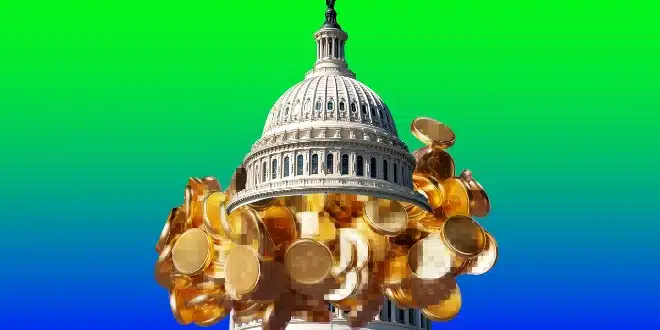The U.S. has finally taken a significant step into crypto regulation with the passage of the GENIUS Act, a law championed by President Donald Trump. The legislation aims to bring much-needed oversight to the stablecoin market, requiring issuers to fully back tokens with assets, register as financial institutions under the Bank Secrecy Act, and comply with stricter anti-money laundering standards. While this marks a meaningful advancement in consumer protection and regulatory clarity, the law may have arrived too late to make the United States the global hub for decentralized finance (DeFi).
Why the U.S. Still Lags Behind
The GENIUS Act only targets stablecoins and won’t be fully implemented until at least mid-2026, leaving regulators two years to write and enforce detailed rules. By comparison, the United Arab Emirates has been refining its digital asset framework since 2018, beginning with Abu Dhabi’s Financial Services Regulatory Authority and later Dubai’s Virtual Assets Regulatory Authority in 2022. This early head start has allowed the UAE to establish a mature ecosystem with licensing structures, custody frameworks, and fraud prevention measures already in place.
Adding to its advantage, the UAE is preparing to launch its central bank digital currency, the Digital Dirham, by 2026 — a move that integrates digital currency directly into its financial system. The U.S., however, has moved in the opposite direction, with Trump signing an executive order prohibiting federal agencies from developing or endorsing a central bank digital currency. This ideological divide underscores how far apart the two nations are in their approach to crypto innovation.
Tax and Investment Incentives Cement the UAE’s Lead
One of the UAE’s most powerful advantages lies in its tax policy. With zero tax on crypto income and capital gains, the country has created one of the most attractive environments for investors and startups alike. By contrast, the U.S. and European Union maintain high-tax regimes that discourage risk-taking in the sector. The UAE’s strategy has not only attracted capital but also encouraged innovation, with more than 500 crypto startups and over 1,000 blockchain-focused companies now operating within its borders.
The results are evident: the UAE ranked as the world’s 10th largest recipient of foreign direct investment in 2024, pulling in a record AED 167.6 billion. Global exchanges like OKX have chosen the UAE as their launchpad for regulated crypto derivatives, citing its clarity, infrastructure, and pro-innovation climate as decisive factors.
The Road Ahead for U.S. Crypto Policy
For the U.S., the GENIUS Act represents progress, but it isn’t transformative enough to close the gap. To realistically compete with the UAE, Washington would need to expand regulation beyond stablecoins, reconsider its stance on central bank digital currencies, and address the tax environment that continues to push investors overseas. Without such changes, the U.S. risks remaining on the sidelines while nations like the UAE set the pace for global crypto adoption.
For now, the UAE remains the undisputed heavyweight of the DeFi world — not only because of its forward-looking regulation and tax incentives but also because of its determination to embed digital finance into its economic future. Unless the U.S. is willing to push harder and faster, the “crypto capital of the world” title is unlikely to shift any time soon.


